The best portable monitors
Need a second display you can use on the move? These are the best portable monitors available today.
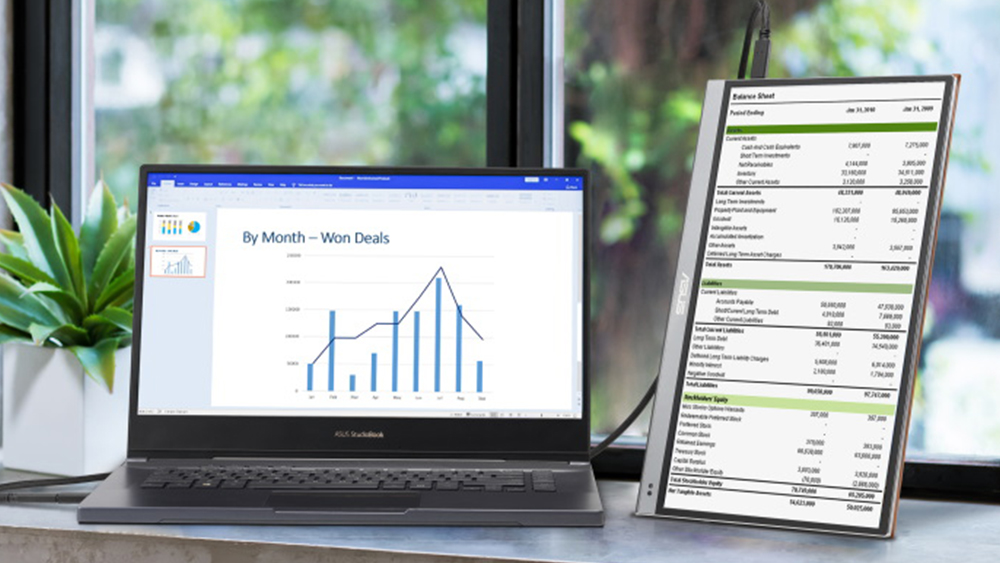
Daily design news, reviews, how-tos and more, as picked by the editors.
You are now subscribed
Your newsletter sign-up was successful
Want to add more newsletters?

Five times a week
CreativeBloq
Your daily dose of creative inspiration: unmissable art, design and tech news, reviews, expert commentary and buying advice.

Once a week
By Design
The design newsletter from Creative Bloq, bringing you the latest news and inspiration from the worlds of graphic design, branding, typography and more.

Once a week
State of the Art
Our digital art newsletter is your go-to source for the latest news, trends, and inspiration from the worlds of art, illustration, 3D modelling, game design, animation, and beyond.

Seasonal (around events)
Brand Impact Awards
Make an impression. Sign up to learn more about this prestigious award scheme, which celebrates the best of branding.
The best portable monitors are very travel-friendly, so you can use them away from a mains connection, be it on transport, at a cafe or in a hotel lobby. Whether you want to work on a design project, present work to a client or simply watch Netflix, a light and compact portable monitor that runs off your laptop is a good way to gain some extra screen space.
Below we've drawn on our vast experience of using, testing and reviewing portable monitors to select the best portable monitors on the market today. Our list includes the best portable monitor for gaming and the best portable monitor for MacBook Pro, as well as our favourites overall.
Don't want to carry a laptop at all? Then see our pick of the best tablets for video editing. Meanwhile if you're looking for a full-sized monitor, we have guides to the best 4K monitors, the best monitor with webcam and the best monitors for photo editing, as well a roundup of the best monitor arms.
The best portable monitors available now
Why you can trust Creative Bloq
Best portable monitor for creative work
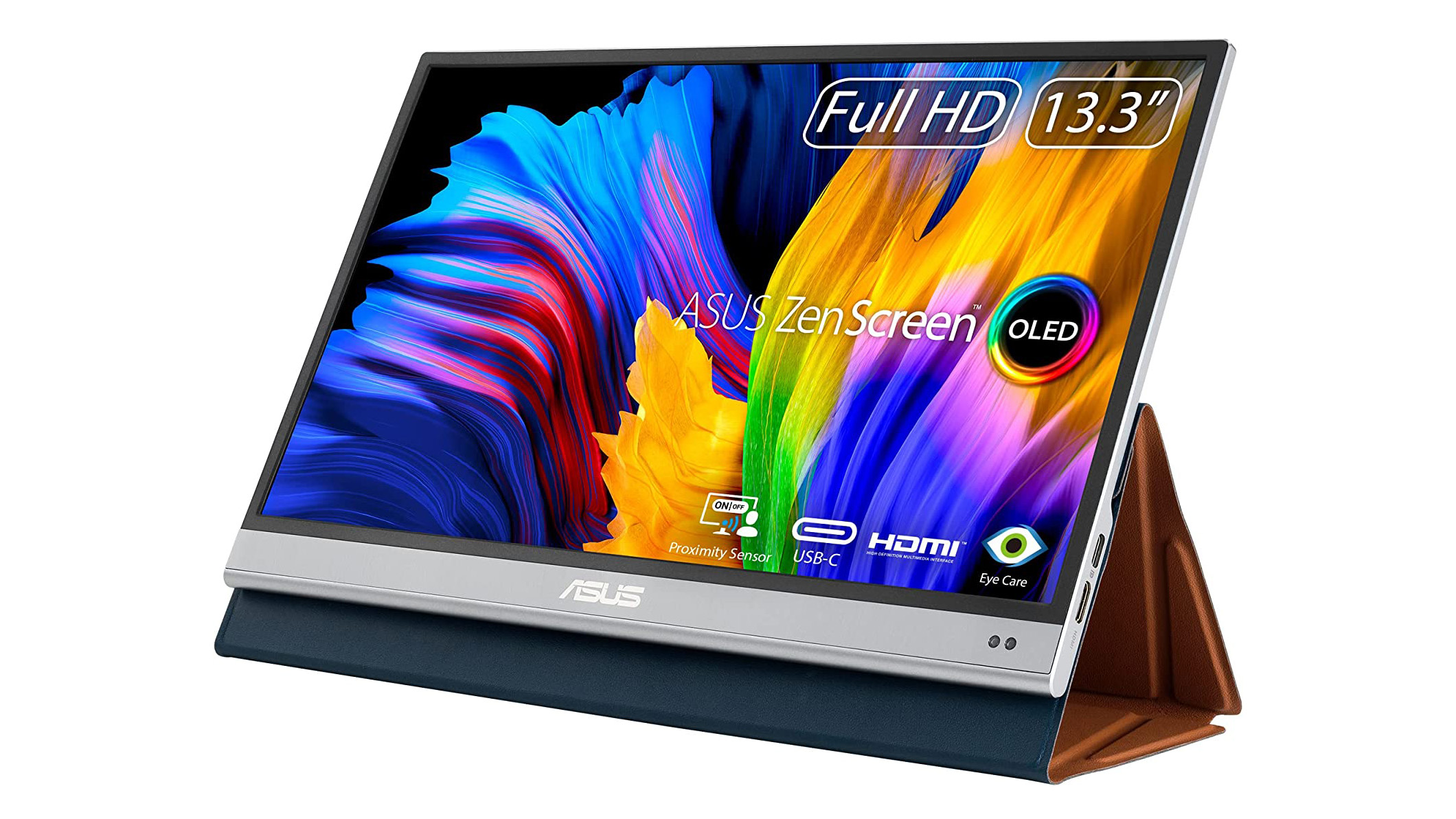

01. Asus ZenScreen OLED MQ13AH
Our expert review:
Specifications
Reasons to buy
Reasons to avoid
Most portable monitors make decent productivity devices, but aren't so hot for creative work. Here's a very welcome exception, with 100% coverage of DCI-P3 colour gamut and Delta E < 2 colour accuracy. There's a monitor hood to help avoid glare, and the auto-rotate capability and portrait mode make it a flexible device that's equally suitable for photo editing, writing or coding. The latter should also help prevent burn-ins (a proximity sensor that switches the monitor to a power-saving mode when you're not around also contributes to that effort).
OLED is the big thing in monitors at the moment, and the Asus ZenScreen OLED MQ13AH brings the tech to portable monitors. This 13-inch offering from Asus boasts a very impressive 100,000:1 contrast ratio and delivers those deep black and rich colours that OLED technology is best known for. That's not just great for creative work, but also post-work movie-watching.
Best portable monitor for productivity
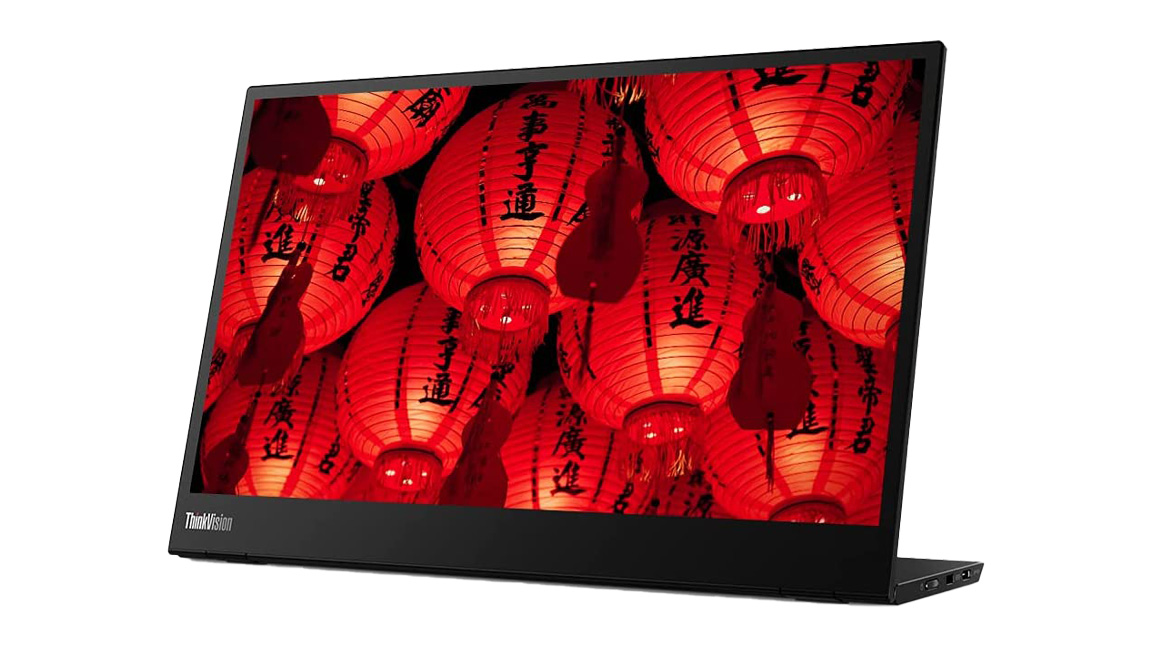

02. Lenovo ThinkVision M14
Our expert review:
Specifications
Reasons to buy
Reasons to avoid
It might not be the most feature-rich option on the market, but the Lenovo ThinkVision M14 is great for business professionals who want to travel light because it's ultralightweight and ultrathin at just 598g. And, in an effort to keep things minimal, it also has two advanced USB-C ports that simultaneously that support both video and power.
We liked the kickstand, which is versatile enough to go from a -5° to 90° tilt angle. And, while it might not have the best contrast ratio, we found the brightness of 300 nits should be fine for general productivity use, while vibrant colours make it excellent for streaming shows and movies too.
Best portable monitor for gaming
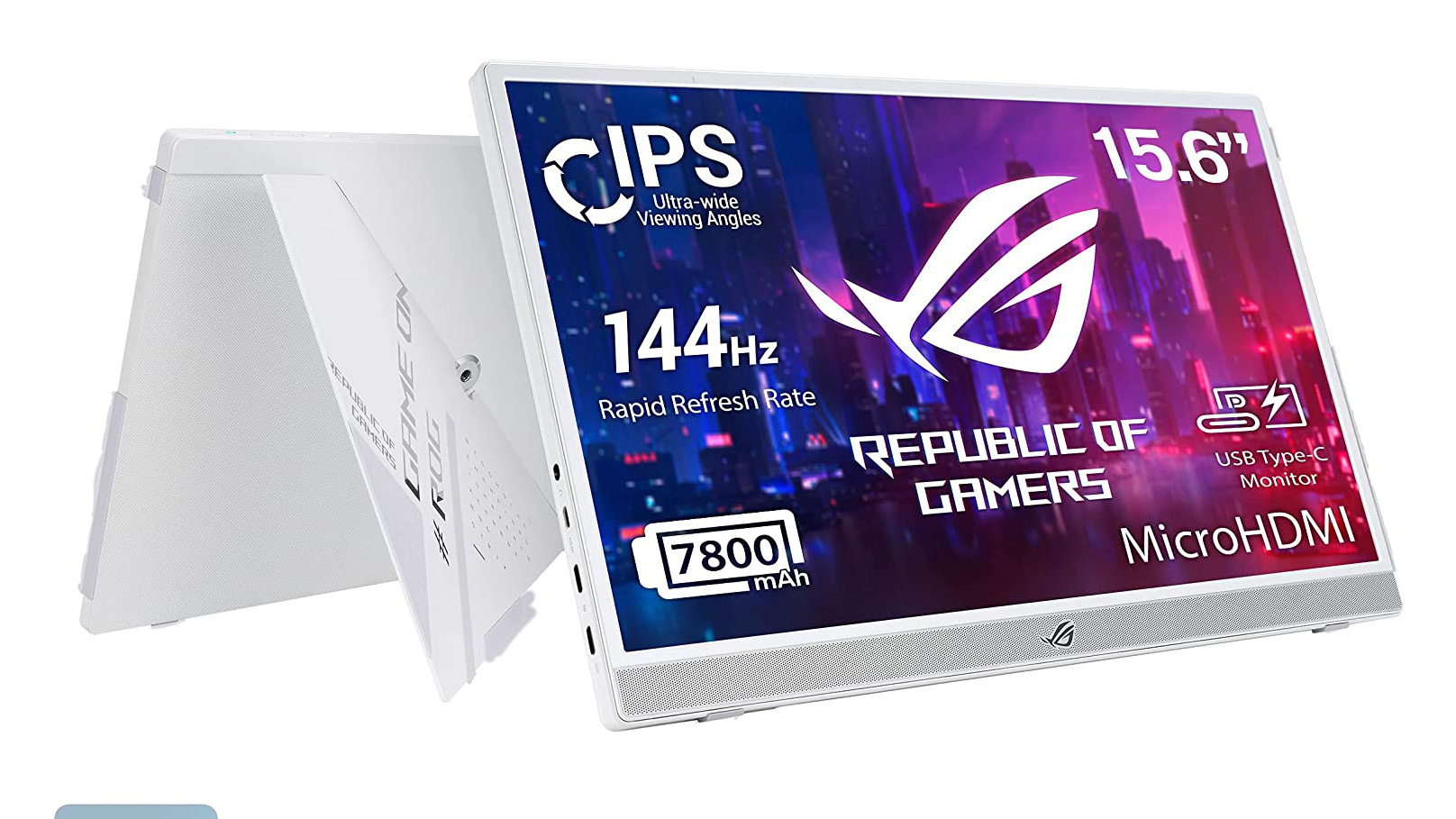

03. Asus ROG Strix XG16AHPE
Our expert review:
Specifications
Reasons to buy
Reasons to avoid
PC gaming on the go has never really been easy, but the Asus ROG Strix XG16AHPE does make it a little better. This 15.6-inch device is our pick as the best portable monitor for gaming thanks to a 144Hz refresh rate to keep fast-paced games running sharp and smooth and Nvidia G-Sync so you don't experience screen tearing that will ruin your immersion.
We found the screen allowed us to spread out a little, especially when in multiplayer mode and needing access to other apps like Discord to communicate with teammates. It even has a built-in battery so you can use it when there's no outlet on hand – though it only gives you up to two hours of juice so we wouldn't rely on it too much. The front-facing stereo speakers also do the job if you want to put your laptop aside and game with a controller.
Best portable monitor for battery life
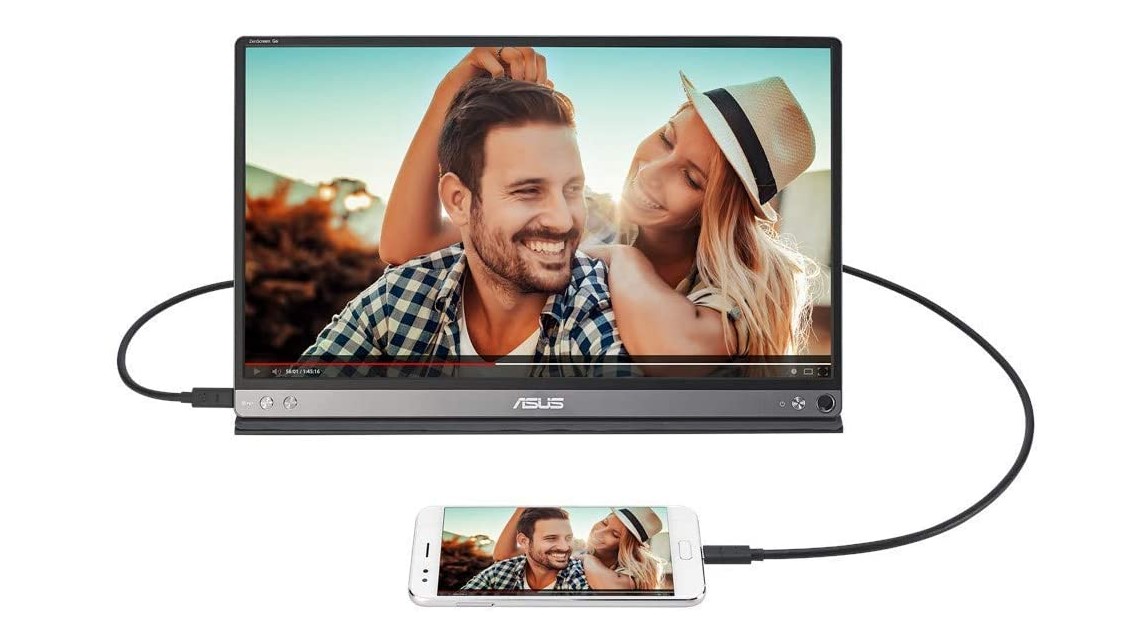
04. Asus ZenScreen GO MB16AP
Our expert review:
Specifications
Reasons to buy
Reasons to avoid
Even the best portable monitors usually draw their power directly from your laptop, which can drain their batteries quickly. If you work on the move a lot, you might prefer to get a portable monitor with a built-in battery, which is where the Asus ZenScreen GO MB16AP stands out. It offers up to four hours of battery life on its own power – it comes with an adapter too.
The screen automatically switches between landscape and portrait modes, and the picture quality is sharp and colour-accurate. It's also very light and portable at just 848g and 8mm thick. It can connect to your laptop via either USB-C or USB-A (using the included adapter). The MB16AP also comes with a foldable case that doubles as a stand and a Zen screen pen too. Yes, this is the most expensive portable monitor on our list, we feel it's still very good value if you need the best portable monitor with its own battery.
Best portable monitor for MacBook Pro
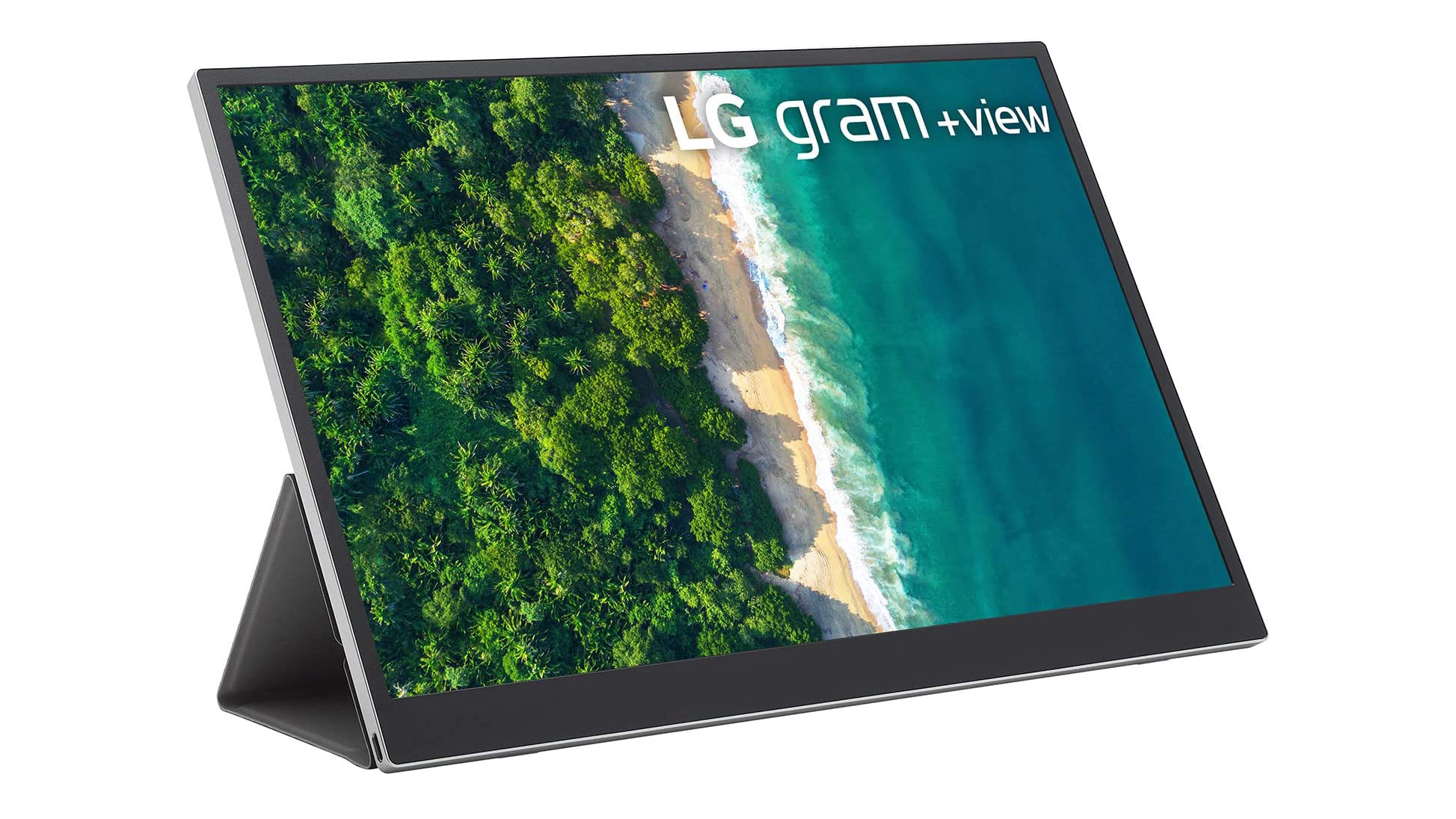
05. LG Gram +view 16MQ70
Our expert review:
Specifications
Reasons to buy
Reasons to avoid
The LG Gram +view 16MQ70 is our pick as the best portable monitor for MacBook Pro. Yes, despite the fact that (as the name suggests) it's actually designed for the LG Gram! That's because it boasts a bright picture quality, 2560 x 1600 resolution, a 1200:1 contrast ratio and 99% DCI-P3 colour coverage, making it great for video and photo editing workflows.
We found it to be a great portable monitor for productivity thanks to the 16:10 aspect ratio, which lets you spread out or display more of your window – handy for coding, writing articles, or doing research. And, while it might not be the thinnest portable monitor out there, it's quite lightweight for a 16-incher.
Best portable monitor for basic use
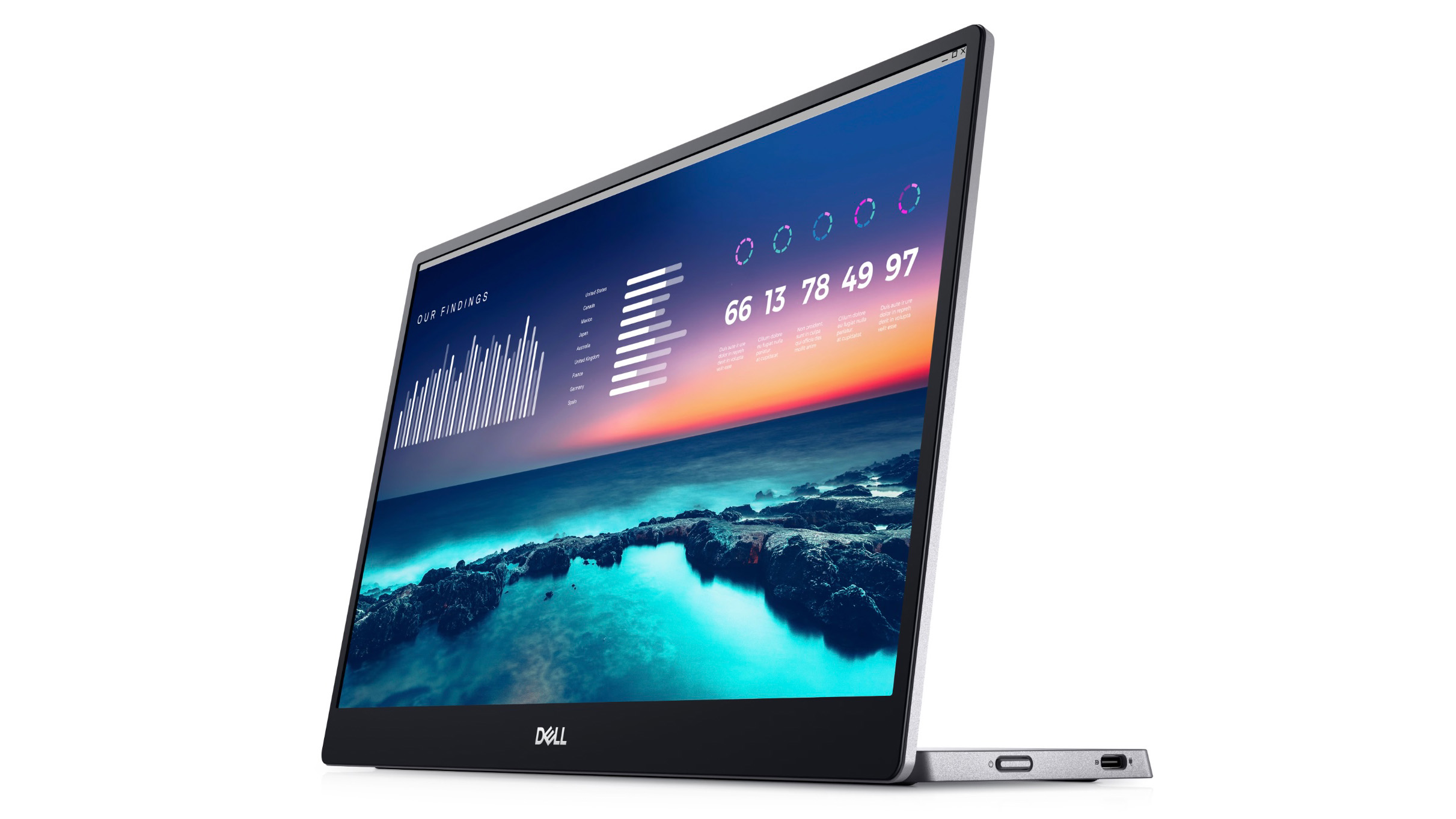
06. Dell C1422H
Our expert review:
Specifications
Reasons to buy
Reasons to avoid
Another affordable portable monitor is the Dell C1422H, whose back-to-basics approach is something many can appreciate, especially if it allows them to save money. This ultralightweight monitor may be a little slim on extra features (and sadly, not the slimmest in form factor either), but it certainly delivers where it matters – on keeping you productive. That starts with its USB-C cable and power pass-through functionality so you only need one single outlet to charge it and your laptop.
It also comes with a 10- to 90-degree tilt and 300 nits of brightness, even though its contrast ratio isn't anything to write home about. That 1080p resolution is also just right for its 14-inch panel, giving you plenty of extra screen space without making everything look so small and hard to see. And, while it might be light of features, it boasts great colour accuracy and picture quality. Not too shabby for a monitor you need for productivity.
Best portable monitor for travel
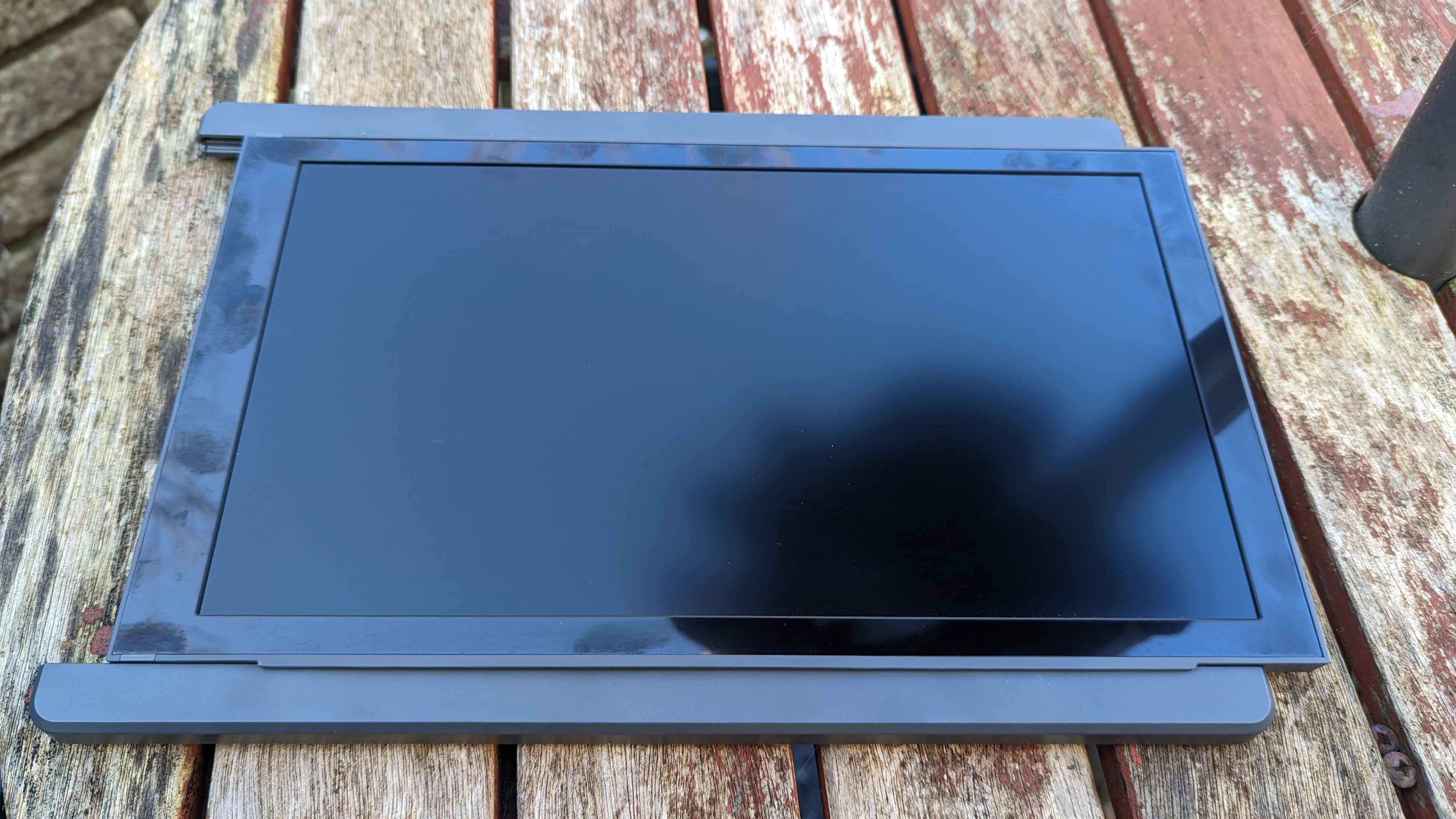
07. Mobile Pixels Duex Lite
Our expert review:
Specifications
Reasons to buy
Reasons to avoid
The Mobile Pixels Dues Lite clips onto the back of a laptop screen and folds around keeping it out of the way when you don't need it. It's super light too, adding to the convenience for travel. That's because the case is entirely plastic, which does make it feel a bit flimsy. The screen is well protected when the device is folded shut but you'll still want to make sure it's well protected when you pack it for travel.
The Duex Lite comes with four sticky pads and magnets, so you can attach it to the back of your laptop screen. This means you can use it to mirror your main screen for someone who's facing you. It also has sliding hinges that allow the screen to be pulled out and slid alongside your main laptop screen like a wing. You could also put it in a phone stand.
As for use cases, this is very much a screen for general productivity, spreadsheets, emails and not so much creative work. At 300 nits, it's not very bright, and colour coverage isn't great either. The FHD resolution and 60Hz refresh rate put it in the same range of price/quality as a lot of lower-end laptop displays, so this isn't a screen to add a better display to your laptop but rather to extend your display. All in all, despite some mediocre specs, we've found this to be the best travel monitor at this affordable price point for when we need to keep weight down.
See our full Mobile Pixels Duex Lite review for more details.
Best portable monitor for brightness
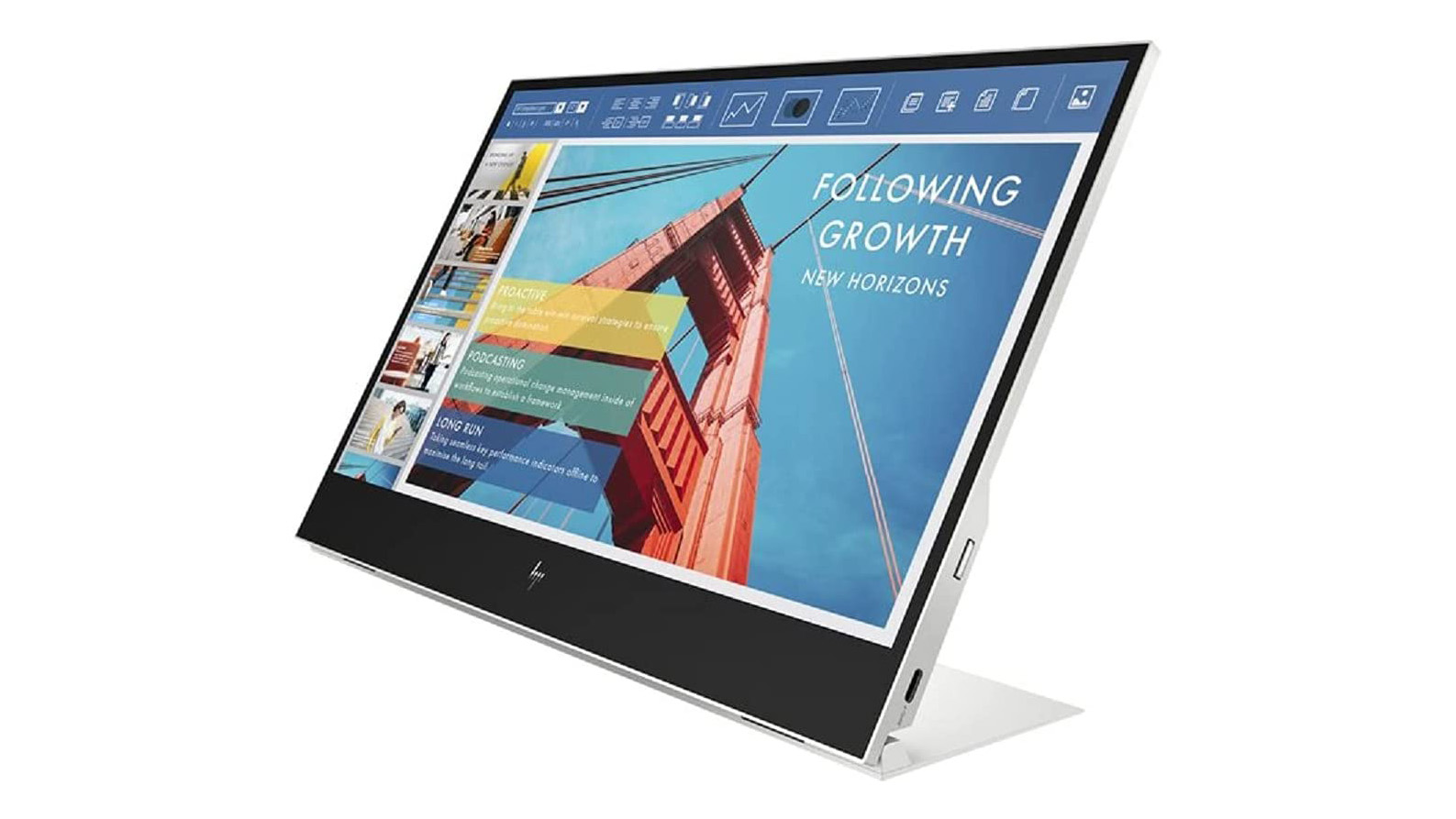
08. HP E14 G4
Our expert review:
Specifications
Reasons to buy
Reasons to avoid
The HP E14 G4 is among the best-looking portable monitors we've tested, and we're not just talking about its panel. Although, with its 400-nits brightness, 800:1 contrast ratio, and vibrant colours, that panel is just as stunning to look at. This 14-inch portable monitor is lightweight and slim, which makes it a great travel companion you'd love to show off, especially with its silver finish.
There are other things to love here as well. It comes with a USB-C port with a 65W power pass-through so you can charge it up using the same cable that transmits data. It's more power-efficient than its predecessor. And, it comes with its own laptop sleeve as well as a kickstand that's stable and easy to use. Of course, its sub-$300/£300 makes it an attractive proposition.
How to choose a portable monitor
There are several factors to consider when choosing the best portable laptop for you. First up, you'll need to decide just how portable you want it to be. All of the monitors in our list below can be powered without a mains connection, but their size and weight varies.
Most of the portable monitors we've included here are between 12 and 15 inches, but we have also included LG's big 16-incher, which is impressively light for its size. Some portable monitors have a built-in battery, which means you can use them for longer, but that has an impact on weight. It's often a case of choosing the right balance between the specs you want and the size/weight that you're able to carry.
You'll also need to consider what you want to use the monitor for. Most portable monitors have FHD (1080p) screens, which is fine for a screen of this size, but many have mediocre brightness and colour coverage. They're good enough for general productivity but not for creative work like photo editing.
For that, you'll want decent brightness, contrast and colour coverage (the Asus ZenScreen OLED MQ13AH at the top of our list is a great choice). Meanwhile, if you want the best portable monitor for gaming, you'll want a faster refresh rate and other specific features to avoid distractions while you play (see Asus ROG Strix XG16AHPE at number 3).
For other types of monitors, see our pick of the best monitors for working from home and the best monitors for photo editing. You might also want one of best monitor calibrators for designers.
FAQs
What is a portable monitor?
A standard external monitor will normally need a power socket but a portable monitor can be powered from your laptop via USB-C. Some of the best portable monitors even have their own battery, which can help them last longer on the go, and avoid draining your laptop. Of course, portability is subjective, and size and weight are also factors.
Why use a portable monitor?
At first, using a portable monitor for a laptop may not strike you as necessary, but it's actually remarkably useful. Adding a portable monitor allows you to spread your windows out or examine images on a larger canvas. You can also use it like you would a projector or TV to mirror your screen to make a presentation or demonstrate something to a class of students.
What are the different types of portable monitors?
There are two main types of portable monitors. The first are USB-powered monitors, which draw power from the device they are connected to, such as a laptop or smartphone. The second are battery-powered monitors, which have their own built-in battery, so they can be used without being connected to a power source.
Daily design news, reviews, how-tos and more, as picked by the editors.

Tom May is an award-winning journalist specialising in art, design, photography and technology. His latest book, The 50 Greatest Designers (Arcturus Publishing), was published this June. He's also author of Great TED Talks: Creativity (Pavilion Books). Tom was previously editor of Professional Photography magazine, associate editor at Creative Bloq, and deputy editor at net magazine.
- Michelle Rae UyFreelance writer
